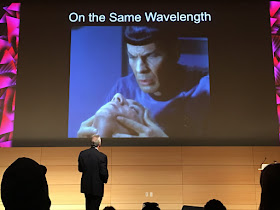For several months now, I've been exploring issues regarding social impact and meaningfulness in my PlayCrafting NYC classes, Designing Games For Impact (coming up soon on September 20). I spoke about the difficulties of measuring impact recently at the Serious Play Conference. Does impact mean increasing awareness or changing beliefs or changing behaviors or all the above?
As I've mentioned before, convincing someone to change one's beliefs is a very hard task. Because of confirmation bias, even new evidence to the contrary will cause a person to cling more fiercely to those beliefs. As Christopher Graves, founder of the Ogilvy Center for Behavioral Science, noted in his keynote at the 2017 Games For Change Festival, arguing the facts simply makes it worse. People who believe differently will just reject those newly discovered facts.
So what's the answer? How can we convince people who don't seem willing to look logically at the facts?
Graves points to the theory of narrative transportation whereby people become so enthralled with an immersive, narrative story that their attitudes change to reflect that of the story's, even when the story is known to be fictional. In fact, neurophysiologists have discovered mirror neurons in the brains of the storyteller and the people listening to the story. Mirror neurons may even be the basis for empathy.
 |
| Christopher Graves speaks at the 2017 Games For Change Festival |
But not all stories trigger mirror neurons. The listener needs to feel so enraptured by vivid and concrete imagery that the listener feels like this is a living world filled with believable characters and situations. In essence, great narrative stories may be the way to change people's hearts and minds.
Sande Chen is a writer and game designer whose work has spanned 10 years in the industry. Her credits include 1999 IGF winner Terminus, 2007 PC RPG of the Year The Witcher, and Wizard 101. She is one of the founding members of the IGDA Game Design SIG.
No comments:
Post a Comment